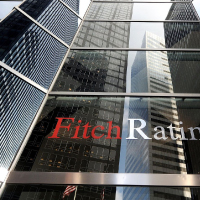
Recommended contact person
English text follows.
Στις 13 Μαΐου 2025, το Επαρχιακό Δικαστήριο Λευκωσίας εξέδωσε απόφαση που αλλάζει ριζικά το τραπεζικό τοπίο στην Κύπρο. Η υπόθεση αφορούσε τον Οργανισμό Χρηματοδοτήσεως Στέγης (“ΟΧΣ”), όμως η σημασία της εκτείνεται πολύ ευρύτερα, αγγίζοντας όλες τις κυπριακές τράπεζες και το τραπεζικό σύστημα συνολικά.
Η απόφαση εκδόθηκε κατόπιν αίτησης του Γενικού Εισαγγελέα, εκ μέρους του Διευθυντή της Υπηρεσίας Προστασίας Καταναλωτή, στη βάση παραβιάσεων του Νόμου περί Καταχρηστικών Ρητρών σε Καταναλωτικές Συμβάσεις (Ν.93(Ι)/96) και της Οδηγίας 93/13/ΕΟΚ της Ευρωπαϊκής Ένωσης.
Τι κρίθηκε καταχρηστικό;
Το δικαστήριο αναγνώρισε μια σειρά από τυποποιημένες ρήτρες σε δανειακές συμβάσεις ως καταχρηστικές, όπως:
- Τη μονομερή μεταβολή του επιτοκίου ή των τραπεζικών εξόδων από την τράπεζα.
- Τη μονομερή αλλαγή του τρόπου ή του χρόνου αποπληρωμής του δανείου.
- Τη δυνατότητα της τράπεζας να αυξάνει το επιτόκιο ή να επιβάλλει επιπλέον τόκους υπερημερίας κατά την κρίση της.
- Την επιβολή αόριστων και μη προκαθορισμένων εξόδων (δικαστικών, δικηγορικών κλπ).
- Τη γενική επίσχεση (General Preferential Lien) πάνω σε περιουσιακά στοιχεία του δανειολήπτη χωρίς σαφείς όρους.
- Τη δυνατότητα συμψηφισμού λογαριασμών χωρίς προειδοποίηση.
Η Σημασία της Απόφασης
Η σημασία της απόφασης αυτής δεν περιορίζεται μόνο στο συγκεκριμένο τραπεζικό ίδρυμα. Αποτελεί:
- Ένα μήνυμα υπέρ της ενίσχυσης της προστασίας των καταναλωτών.
- Ένα καθαρό πλαίσιο για τις τράπεζες ότι οι τυποποιημένες ρήτρες υπόκεινται σε δικαστικό έλεγχο και δεν μπορούν να παραβιάζουν τα δικαιώματα του καταναλωτή.
- Επιβεβαίωση της εφαρμογής του ευρωπαϊκού δικαίου περί καταχρηστικών ρητρών στις κυπριακές συμβάσεις.
Η εφαρμογή της Οδηγίας 93/13/ΕΟΚ ενσωματώνει σημαντικές προστασίες για τον αδύναμο συμβαλλόμενο (καταναλωτή), ενώ η απόφαση του δικαστηρίου επιβεβαιώνει ότι τα τραπεζικά ιδρύματα δεν μπορούν να επικαλούνται την «ελευθερία συμβάσεων» για να επιβάλλουν μονομερείς όρους που καταπατούν θεμελιώδεις αρχές ισότητας και διαφάνειας.
Αλλαγές για τις Τράπεζες και τις Συμβάσεις με το Κοινό
Μετά από αυτήν την απόφαση:
- Οι τράπεζες οφείλουν να επανεξετάσουν όλες τις τυποποιημένες συμβάσεις τους και να αφαιρέσουν ή να τροποποιήσουν ρήτρες που ενδέχεται να κριθούν καταχρηστικές.
- Οι δανειολήπτες έχουν πλέον ισχυρότερο νομικό έρεισμα για να αμφισβητήσουν καταχρηστικούς όρους.
- Η Υπηρεσία Προστασίας Καταναλωτή αποκτά ενισχυμένο ρόλο στον έλεγχο των τραπεζικών πρακτικών.
Τι Προτείνουμε
- Ελέγξετε τις δανειακές σας συμβάσεις για την ύπαρξη καταχρηστικών ρητρών.
- Συμβουλευτείτε τον νομικό σας σύμβουλο για το αν και πώς μπορείτε να αμφισβητήσετε μονομερείς χρεώσεις ή τροποποιήσεις.
Η απόφαση αυτή θέτει νέα δεδομένα στις σχέσεις μεταξύ τραπεζών και καταναλωτών. Εισάγει ένα αυστηρότερο νομικό πλαίσιο, ενισχύει τη διαφάνεια και περιορίζει τις πρακτικές που μέχρι πρότινος θεωρούνταν κοινώς αποδεκτές. Η συμμόρφωση με το νέο αυτό νομικό τοπίο θα αποτελέσει πρόκληση, αλλά και ευκαιρία για εκσυγχρονισμό των τραπεζικών πρακτικών και εναρμόνισή τους με τις απαιτήσεις του ευρωπαϊκού και κυπριακού δικαίου.
Δυνατότητα Έφεσης
Σημειώνεται πως η απόφαση αυτή είναι πρωτόδικη και, ως εκ τούτου, ο ΟΧΣ έχει το δικαίωμα να ασκήσει έφεση εντός 42 ημερών από την ημερομηνία έκδοσης της απόφασης. Σε περίπτωση που ασκηθεί έφεση, το Ανώτερο Δικαστήριο θα εξετάσει τόσο νομικά ζητήματα όσο και, σε ορισμένες περιπτώσεις, ζητήματα πραγματικών περιστατικών, ανάλογα με το εύρος των λόγων έφεσης που θα εγερθούν.
Το αποτέλεσμα της έφεσης μπορεί να είναι:
- Επικύρωση της πρωτόδικης απόφασης.
- Τροποποίηση μέρους της απόφασης, ιδίως εάν θεωρηθούν υπερβολικές ή δυσανάλογες κάποιες από τις διατάξεις.
- Ανατροπή της απόφασης, εάν το Ανώτερο Δικαστήριο θεωρήσει ότι έγιναν ουσιαστικά σφάλματα στην ερμηνεία του νόμου ή στην εφαρμογή των αποδεικτικών στοιχείων.
Ως εκ τούτου, ενώ η πρωτόδικη απόφαση αποτελεί ήδη σημείο αναφοράς, το τελικό αποτέλεσμα μπορεί να διαμορφωθεί περαιτέρω από την πορεία της έφεσης.
Landmark Ruling Against Unfair Terms in Banking Contracts
On May 13, 2025, the Nicosia District Court issued a decision that reshapes the banking landscape in Cyprus. The case concerned the Cyprus Land Development Corporation (Organismos Christodotiseos Stegis, “OHS”), but its significance extends far beyond, affecting all Cypriot banks and the national banking system as a whole.
The judgment was issued following an application by the Attorney General, on behalf of the Director of the Consumer Protection Service, based on violations of the Law on Unfair Terms in Consumer Contracts (Law 93(I)/96) and EU Directive 93/13/EEC.
What Was Found to Be Unfair?
The court identified a series of standard clauses in loan agreements as unfair, including:
- The bank’s unilateral right to change interest rates or banking fees.
- The bank’s unilateral right to change the method or timing of loan repayment.
- The bank’s right to increase the interest rate or impose additional default interest at its discretion.
- The imposition of vague and undefined charges (legal fees, court costs, etc.).
- A general preferential lien over the borrower’s assets without clear conditions.
- The ability to set off accounts without prior notice.
The Importance of the Decision
The significance of this ruling is not limited to the specific institution involved. It represents:
- A strong message in favour of enhanced consumer protection.
- A clear framework indicating that standard contractual terms are subject to judicial review and cannot override consumer rights.
- A confirmation of the application of EU law on unfair terms in Cypriot contracts.
The implementation of Directive 93/13/EEC introduces substantial safeguards for the weaker contracting party (the consumer), and the court’s decision reaffirms that financial institutions cannot rely on “freedom of contract” to impose unilateral terms that violate fundamental principles of equality and transparency.
Changes for Banks and Public Contracts
Following this ruling:
- Banks will need to review all their standard agreements and remove or amend clauses that could be deemed unfair.
- Borrowers now have stronger legal grounds to challenge unfair terms.
- The Consumer Protection Service is empowered to play a more active role in overseeing banking practices.
Recommendations
- Review your loan agreements to identify potential unfair terms.
- Consult your legal advisor to assess whether and how you can challenge unilateral charges or modifications.
This ruling sets new benchmarks in the relationship between banks and consumers. It introduces a stricter legal framework, strengthens transparency, and restricts practices that were previously considered commonly accepted. Compliance with this new legal landscape will present both a challenge and an opportunity for banks to modernize their practices and align with the demands of EU and Cypriot law.
Right of Appeal
It should be noted that this decision is a first-instance (district court) ruling. As such, the OHS has the right to file an appeal within 42 days from the date the decision was issued. If an appeal is filed, the Supreme Court will examine both legal and, in certain cases, factual issues, depending on the grounds raised.
The potential outcomes of the appeal include:
- Confirmation of the lower court’s ruling.
- Partial modification of the decision, especially if certain provisions are deemed excessive or disproportionate.
- Overturning of the decision if the Supreme Court finds material errors in the interpretation of the law or the handling of the evidence.
Therefore, while the district court’s judgment already stands as a landmark, its final impact may further evolve depending on the course and outcome of the appeal.
The information provided by AGPLAW | A.G. Paphitis & Co. LLC is for general informational purposes only and should not be construed as professional or formal legal advice. While every effort has been made to ensure the accuracy and reliability of the information contained herein, the author, publisher, or any related parties make no representations or warranties of any kind, express or implied, about the completeness, accuracy, reliability, suitability, or availability of the information. In no event will the author, publisher, or any related parties be liable for any loss or damage, including without limitation, indirect or consequential loss or damage, or any loss or damage whatsoever arising from loss of data or profits arising out of, or in connection with, the use of this document/article. You should not act or refrain from acting based on any information provided above without obtaining legal or other professional advice.















